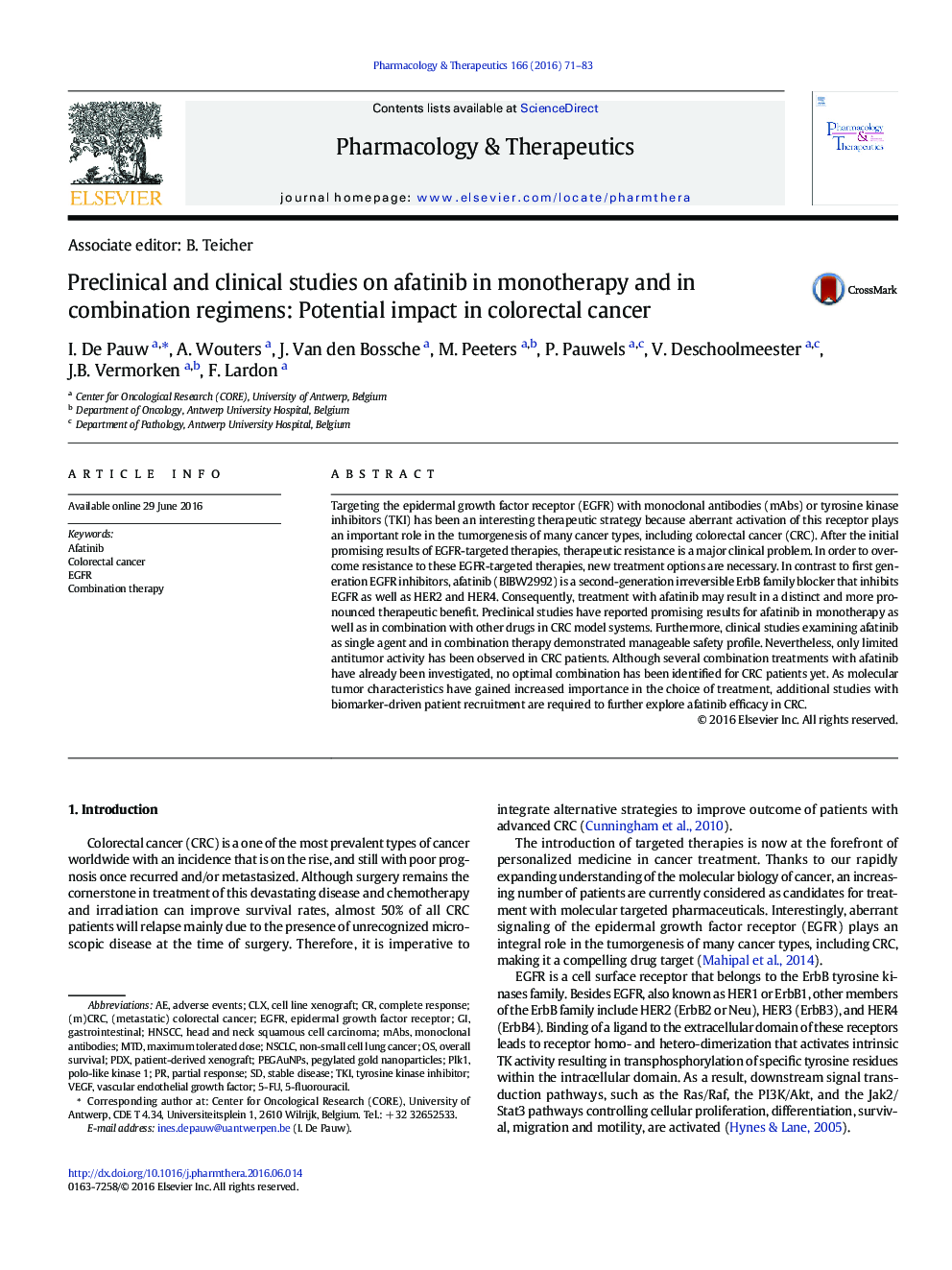| Article ID | Journal | Published Year | Pages | File Type |
|---|---|---|---|---|
| 5557782 | Pharmacology & Therapeutics | 2016 | 13 Pages |
Targeting the epidermal growth factor receptor (EGFR) with monoclonal antibodies (mAbs) or tyrosine kinase inhibitors (TKI) has been an interesting therapeutic strategy because aberrant activation of this receptor plays an important role in the tumorgenesis of many cancer types, including colorectal cancer (CRC). After the initial promising results of EGFR-targeted therapies, therapeutic resistance is a major clinical problem. In order to overcome resistance to these EGFR-targeted therapies, new treatment options are necessary. In contrast to first generation EGFR inhibitors, afatinib (BIBW2992) is a second-generation irreversible ErbB family blocker that inhibits EGFR as well as HER2 and HER4. Consequently, treatment with afatinib may result in a distinct and more pronounced therapeutic benefit. Preclinical studies have reported promising results for afatinib in monotherapy as well as in combination with other drugs in CRC model systems. Furthermore, clinical studies examining afatinib as single agent and in combination therapy demonstrated manageable safety profile. Nevertheless, only limited antitumor activity has been observed in CRC patients. Although several combination treatments with afatinib have already been investigated, no optimal combination has been identified for CRC patients yet. As molecular tumor characteristics have gained increased importance in the choice of treatment, additional studies with biomarker-driven patient recruitment are required to further explore afatinib efficacy in CRC.
